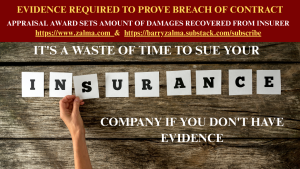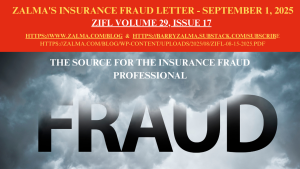ADA Abuse – The Road to Hell is Paved With Good Intentions
The Americans with Disabilities Act (ADA) was signed into law by President George H. W. Bush on July 26, 1990 with the good intentions of helping people with disabilities. It is a federal civil rights law that prohibits discrimination against people with disabilities in everyday activities. The ADA guarantees that people with disabilities have the same opportunities as everyone else to enjoy employment opportunities, purchase goods and services, and participate in state and local government programs.
The stated goal of the ADA was to eliminate discrimination against individuals with disabilities. A major source of discrimination suffered by disabled individuals is the inability to gain access to public accommodations such as restaurants, hotels, movie theaters, gas stations and the facilities of other small businesses.
The intent of the statute was to ascertain that businesses that want to comply with the law should be able to do so without undue cost, delay, or uncertainty. Although the statute was full of good intentions the law of unintended consequences took hold and those good intentions, were taken advantage of by unscrupulous people and their lawyers. Lawsuits proliferated by persons who claimed to be disabled or simply took the position that they were advocates for the disabled.
In truth, the ADA advocates and their lawyers litigated under the ADA with the sole purpose of making money. Most had no intention or concern about the needs of those with disabilities. They took advantage of the provisions of the statute that allow individuals to enforce the accessibility requirements to bring a private right of action against individual businesses and property owners.
It seems to me that ADA will not be changed to protect against ADA abuse. Every small business in a facility built before 1990 or without concern for ADA requirements, like most, is a potential defendant in an ADA suit and will be held to uninsured ransom.
No current liability insurance policy, CGL, BOP, or common liability insurance policy provides coverage for the ADA suit. As a result, a small business owner, lessor or lessee that protects with insurance will find their assets naked to the ADA trolls. The small business owner will need to retain counsel, defend the suit, pay the legal extortion or face a major judgment.
The ADA has created a large market for the liability insurance industry who, by use of a simple endorsement to a CGL or BOP, can create coverage to protect the small business owner and work to defeat the ADA trolls ability to profit from the scheme.
(c) 2025 Barry Zalma & ClaimSchool, Inc.
Please tell your friends and colleagues about this Substack publication.
Subscribe to my substack at https://barryzalma.substack.com/subscribe
Go to X @bzalma; Go to Barry Zalma videos at Rumble.com at https://rumble.com/account/content?type=all; Go to Barry Zalma on YouTube- https://www.youtube.com/channel/UCysiZklEtxZsSF9DfC0Expg; Go to the Insurance Claims Library – https://lnkd.in/gwEYk.





